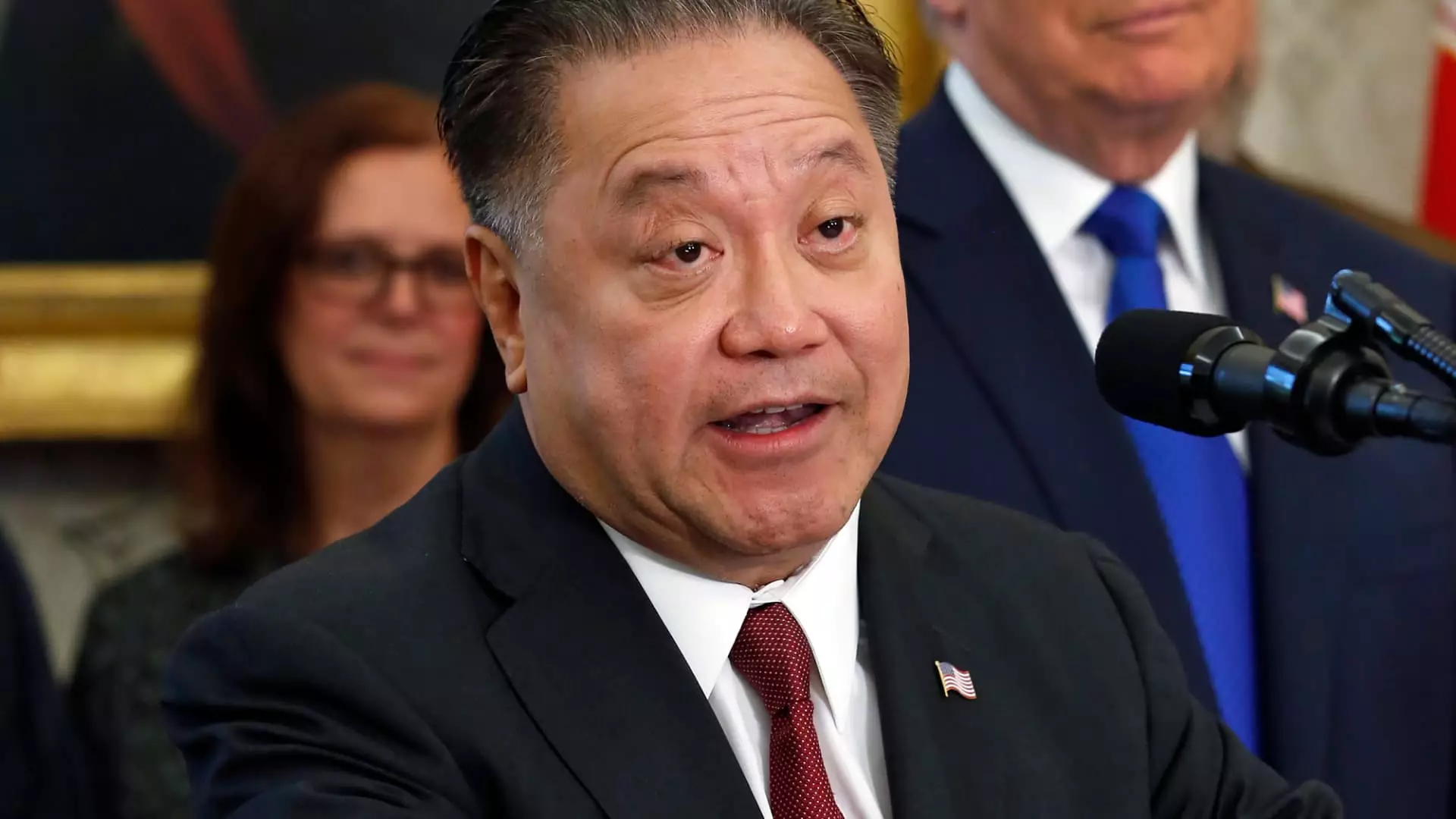Broadcom’s recent financial disclosures underscore a pivotal shift in the company’s trajectory, especially within the high-stakes realm of artificial intelligence. The company’s stock surged by 15%, marking a significant rally fueled by an unprecedented announcement: a new $10 billion deal with a major customer poised to transform the AI hardware ecosystem. While the company remains discreet about its clientele, industry insiders and analysts are vocally suspecting that OpenAI, a trailblazer in AI innovation, might be the key player behind this colossal order.
This development signals more than just a financial milestone; it represents Broadcom’s strategic positioning in a fiercely competitive market where AI workloads are rapidly becoming the backbone of technological progress. By securing such a substantial order from a major AI startup or an industry leader, Broadcom firmly establishes itself as an essential contributor to the next-generation computing infrastructure. The move also highlights the company’s agility in adapting to market demands that are shaping the future of AI hardware—specifically, Application-Specific Integrated Circuits (ASICs) optimized for AI processing, termed XPUs by Broadcom.
Challenging the Tech Giants: Broadcom’s Aspirations and Industry Impact
Historically, the semiconductor industry has been dominated by titans like Nvidia, Intel, and AMD. However, Broadcom’s recent performance indicates a strategic pivot aimed at taking a bigger slice of the AI hardware pie. Its stock’s meteoric rise—more than doubling over the past year—reflects investor confidence in the company’s ability to capitalize on burgeoning AI demands. With a market cap now exceeding $1.6 trillion, Broadcom’s growth suggests that traditional chipmakers are not just competing but potentially leading the charge by partnering deeply with groundbreaking AI companies.
Indeed, what makes these developments truly remarkable is the potential partnership with OpenAI, a company long regarded as a visionary in democratizing and advancing artificial intelligence. According to industry speculation, the co-design of a custom AI chip scheduled for release next year underscores the seriousness of this collaboration. The anticipated shipment start date in 2026 hints at a complex, strategic, multi-year plan—one that could redefine how AI infrastructure is built and scaled.
The deal’s magnitude hints at a broader industry trend: the emergence of AI-specific hardware as an essential component of data centers and cloud infrastructure. Broadcom’s confidence in this market, bolstered by such a substantial single order, demonstrates a shift from traditional consumer and enterprise markets into the specialized, high-margin arena of AI workloads. This could potentially challenge existing hardware monopolies and open doors for new, innovative players.
The Financial Ramifications and Future Growth Opportunities
Broadcom’s financial results reflect a company on a growth spree, with recent earnings surpassing analyst expectations. Its AI revenue, already pegged at a substantial $6.2 billion for the upcoming quarter, is projected to expand even further—especially with a single transaction valued at $10 billion. This order alone has led analysts at firms like Mizuho and Cantor Fitzgerald to revise their growth models upward, with estimates now indicating AI revenue could grow by more than 75% in the coming year.
However, what’s most compelling is the anticipated impact on Broadcom’s overall revenue outlook. With total revenues projected to approach nearly $82 billion in the next fiscal year, the company’s diversification into AI-specific hardware and its ongoing software expansion—further boosted by the $61 billion VMware acquisition—are key drivers of its success. The integration of infrastructure software, which grew by 43% to nearly $6.8 billion last quarter, complements the hardware push, creating a robust, synergistic ecosystem.
This strategic convergence of hardware and software positions Broadcom as a formidable player not merely riding the wave of AI hype but actively shaping its future. The company’s ability to adapt, innovate, and secure colossal partnerships like the one alleged to be with OpenAI will likely determine whether it maintains this exceptional growth streak or faces steep competitive hurdles ahead.
If these developments materialize as expected, Broadcom is poised to redefine the landscape of AI hardware and infrastructure on a global scale. Its aggressive pursuit of large-scale, bespoke AI chips and strategic alliances with industry leaders could push the company to the forefront of next-generation computing. The looming partnership with OpenAI, if confirmed, would serve as a proof point that the semiconductor industry’s future is leaning heavily towards specialized, scalable AI hardware solutions—an arena where Broadcom is increasingly making its mark.
These revelations aren’t just about impressive numbers; they reflect a larger narrative of innovation, strategic foresight, and competitive resilience. Broadcom’s willingness to step into the limelight by securing a game-changing deal signals that this company is anything but content with traditional hardware paradigms. Instead, it appears ready to challenge the status quo, foster powerful collaborations, and lead the charge into an AI-driven era filled with enormous potential—and possibly, unprecedented profitability.


Leave a Reply